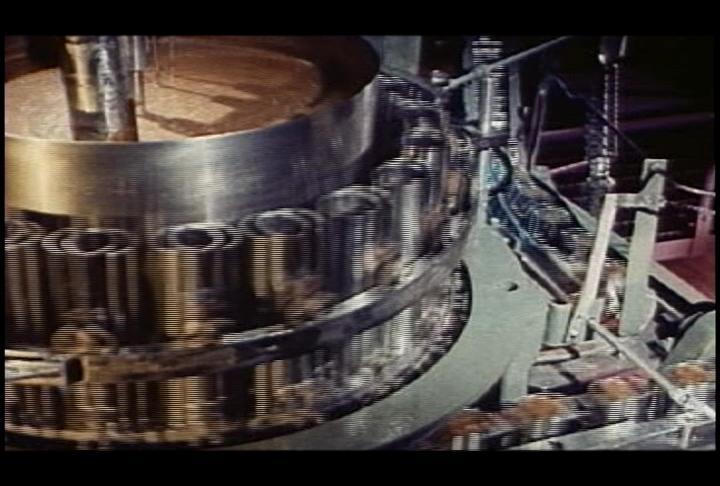
GOOD MORNING AMERICA, Director: Dikran Janus Kadagian US Poet: Carl Sandburg 6min 43s 2007
The sight of American children reciting the Pledge of Allegiance always has the feel of a strange rite of induction into a society that demands obedience from very early on, before one has the chance to sort out for oneself how close to the national flag one wishes to stand. The film opens with late 50’s or early 60’s shots of this ritual in close-up shots of individual children’s faces, all with eyes that seem devoid of any expression, as though brain-washed, and moves to a classroom shot of the same children singing “My Country ‘Tis Of Thee” to the ominous sound of extended bassoon tones and a gentle music-box melody. Rural scenes at dusk follow, and we are reminded that “In God We Trust” in stamped into every U.S. silver dollar over shots of helmeted soldiers preparing their tents in the warm glow of a sunset. From the poem we hear that “we” is “you and me and all of us in the United States of America” while we see diverse scenes of disparate people in varying situations: a baby in a park, newlyweds leaving a church, a “man of the cloth” walking on a congested urban street. The sped-up vintage shots of crowds making their way through traffic are a forerunner of Koyaanisqatsi (as are later scenes of industrialization). “Trusting God means we give ourselves, all of ourselves, the whole United States of America, to God, the Great One,” we hear, followed by, “Yes, perhaps… is that so?”, upon which the title “Good Morning America” appears, and is seen by the viewer not as a greeting, but as a wake-up call. The film moves to scenes of automated mass production, seeming no less alienating or alienated than the children’s faces seen earlier, while the poem continues: “Speed, speed, we are the makers of speed.” Both man and machine hold a strange fascination here, for, whatever the intent, the repetitive nature of both recitation and mass production are hypnotic. Intermittently, we see the products in their finished and ready-to-display form, as if being reminded what all the industrialization is for. The unconscious connection is that the children seen earlier are similarly “processed”, made into shiny, normed products that serve a selected purpose. Speed was also involved in reaching children before it was too late; it came from “us” the reader emphasizes over and over again in a forceful reading of the poem. “Put the blame on us”. The foreboding tones offset by a sweet, aimless melody continue as we see the final shot, sheets of dollar bills being removed from presses for quick inspection. Speed meets value meets values. A good recitation and a well put together short film.
